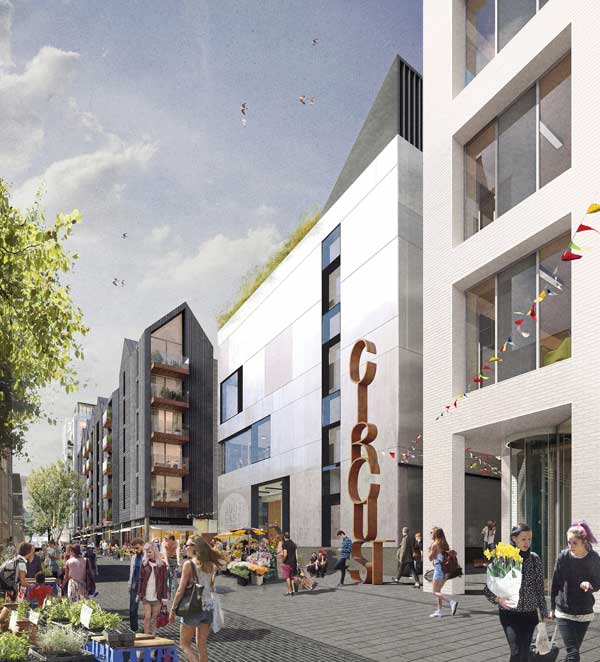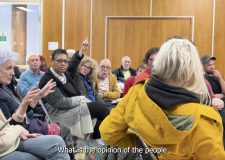Frank le Duc: The Vote

Politicians and business leaders from the Greater Brighton area are looking at how to boost jobs and the economy
Politicians and business leaders are sitting round the same table to try to work out ways to boost jobs and economic growth in Brighton and Hove and the surrounding area. The latest discussion took place at the Greater Brighton Economic Board which also includes council chief executives and senior education officials.
The board held its second meeting last week with a firm focus on cold hard cash and how it can best be used. The words investment and funding appeared liberally in the five reports discussed in just under two hours at the Ropetackle in Shoreham.
The challenge is not as simple as it might sound. Councils are receiving a reducing proportion of their income from the government – their main source of money – while demand for services is rising. And strict rules govern the help that the state – including councils – can give to businesses. So there is a measure of pragmatism, an element of creativity and an increasingly self-critical analysis of whether policies on, say, planning, transport and education help or hinder businesses and the economy.
The board received the results of a business survey. A thousand firms took part. The findings suggested, among other things, that skills and qualifications are less of an issue for employers than employability. School leavers and graduates may have the right qualifications but, according to bosses, too few of them have the right attitude and motivation to be described as “work ready”. Brighton and Hove City Council and its neighbouring councils are expected to lead the work on bridging the gap between the worlds of education and work.
The effort that has gone into inward investment – attracting employers to the area – is seen as crucial to creating the jobs needed to sustain the local economy. But there may be overlaps and duplication which cost time and money and could be avoided through better collaboration. It may seem like common sense to find a more efficient way of selling this part of Sussex to firms from outside.
But without the Greater Brighton board, it is the sort of behind-the-scenes work that might not happen.
“We need to get on with it and show we can deliver otherwise we won’t be so successful next time”
The board also received a report on the recent funding awarded to projects in the Greater Brighton area through the Coast To Capital Local Enterprise Partnership (LEP). Millions of pounds will support housing and educational schemes in Circus Street, Brighton, on the site of the old municipal fruit and veg market, and at Preston Barracks. Other schemes in Shoreham and Newhaven are likely to have knock-on benefits for people in Brighton and Hove.
The LEP is being encouraged to identify the next batch of projects that will boost jobs and economic growth but which need a financial kick-start. One board member, Councillor Geoffrey Theobald, said: “It’s great news that we’ve got all this funding. Now we need to get on with it and show we can deliver, otherwise we won’t be so successful next time.”
He said that improvements to the A27 to eliminate bottlenecks were a vital next step. The business survey results presented to the meeting said: “For most businesses, transport and digital infrastructure are important ‘place’ issues, so it is important that all approaches to transport improvements have a clear economic development focus. This seems to be mainly around access to customers and costs, with parking featuring strongly. Improvements in the local road infrastructure, including parking, and better broadband connections should be a particularly strong focus for economic development activity.”
It is early days for the A27 campaigners and two of the key councils – East Sussex County Council and West Sussex County Council – are not represented on the Greater Brighton Economic Board. But the wider area might benefit from their input, regardless of the outcome of the campaign for an upgraded trunk road.
If the board is successful, the politicians will almost certainly try to let us know. But much of the board’s work is technical in nature and unseen by the public.
If policies are refined to make it easier for firms to create jobs, reach customers and find new premises, it may well be businesses that have the success stories to tell. Either way, there is a sense that the board has made a good start. The challenge now is to build on those foundations.



















